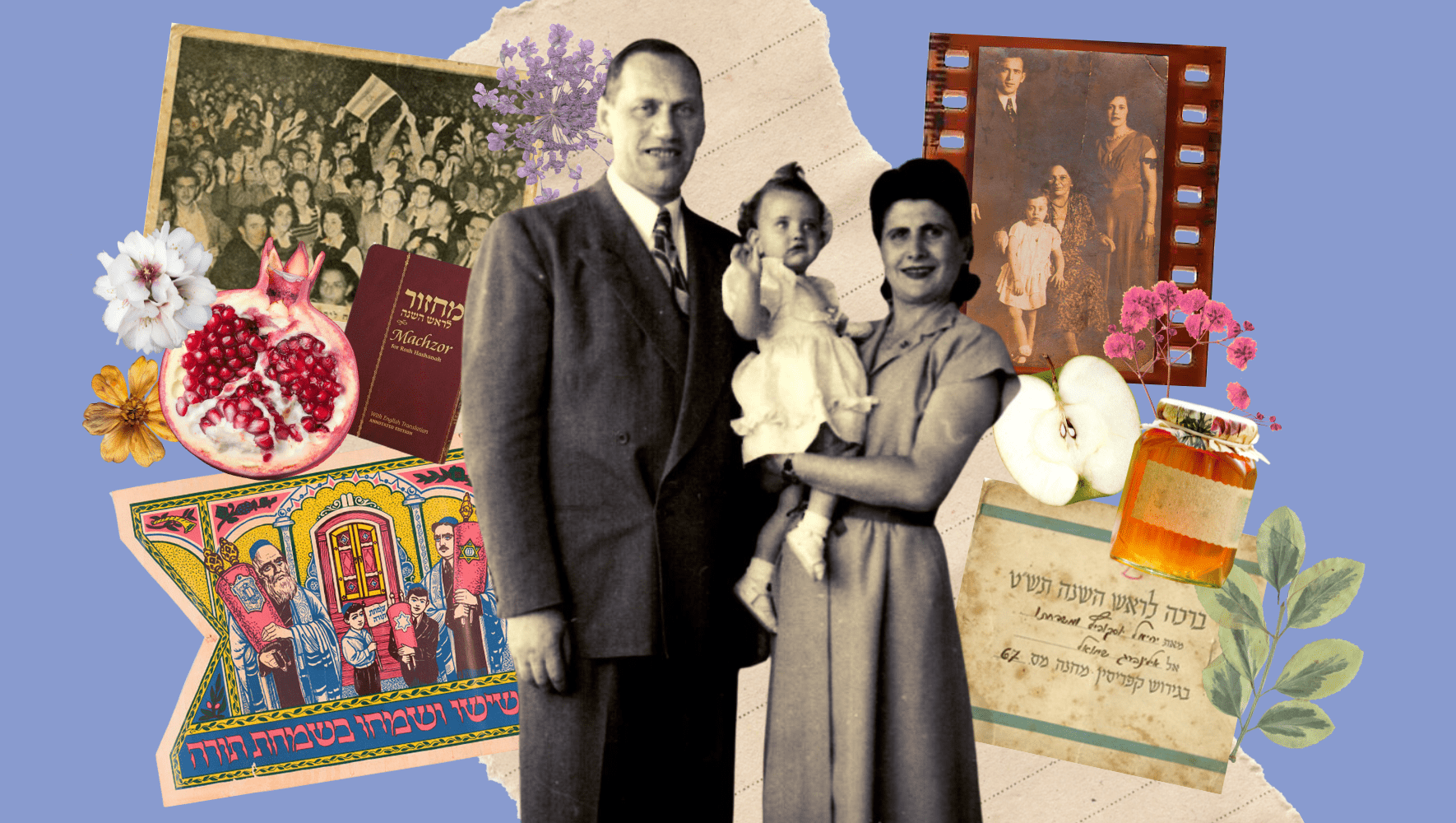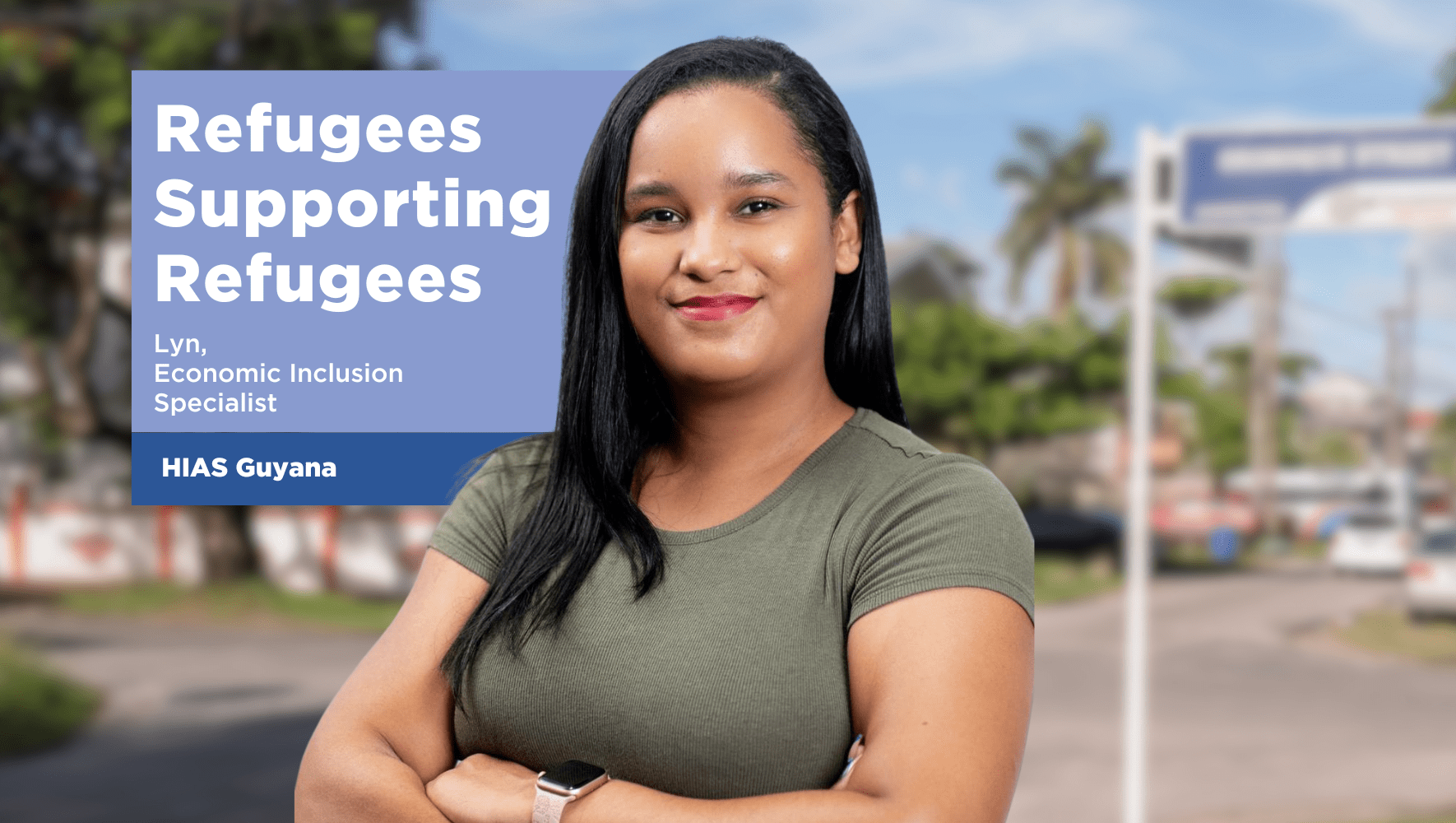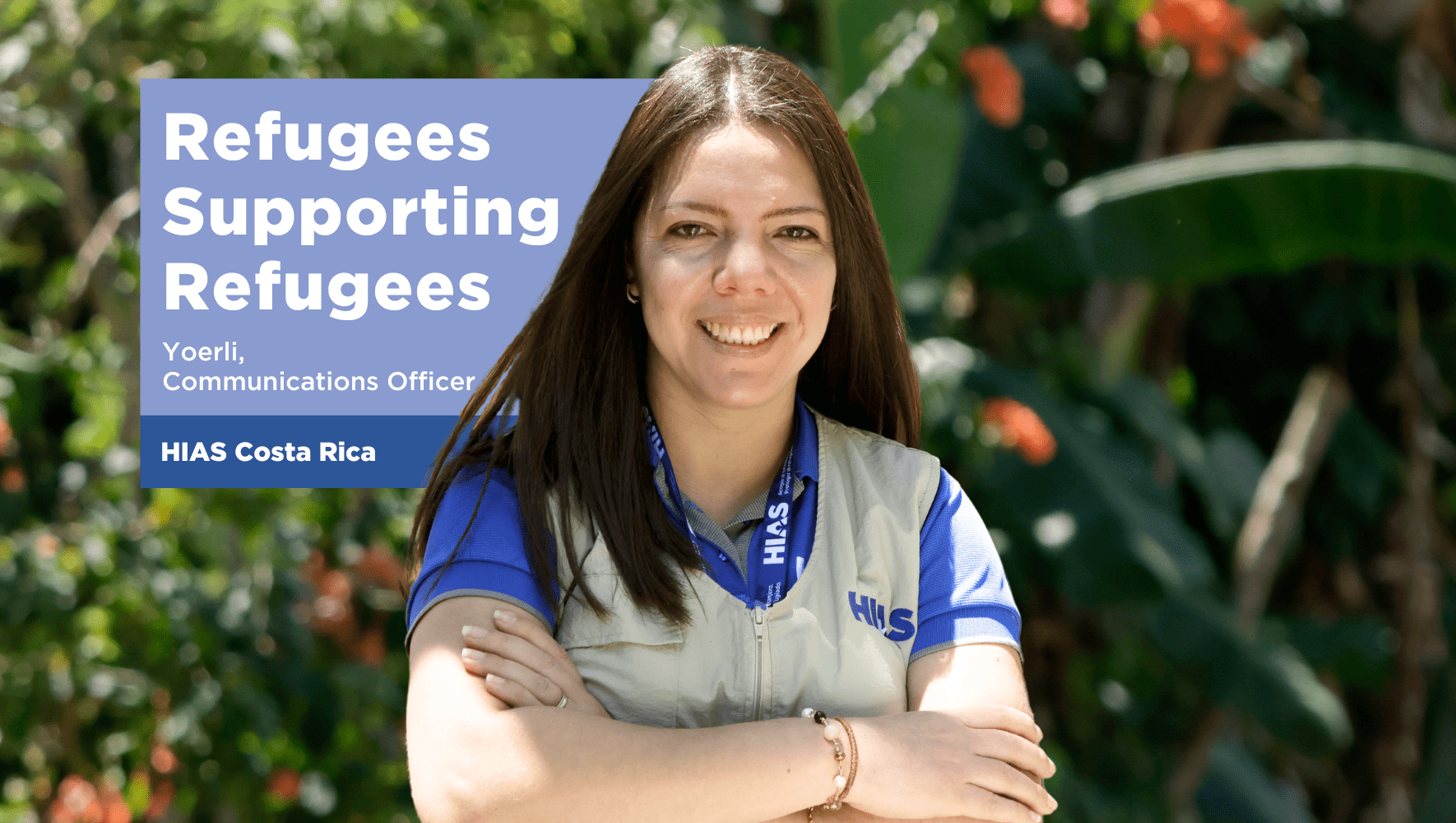Survivors of Gender-Based Violence Get Support in Colombia, Ecuador and Peru
By Beverly Goldberg
HIAS.org
Apr 16, 2024
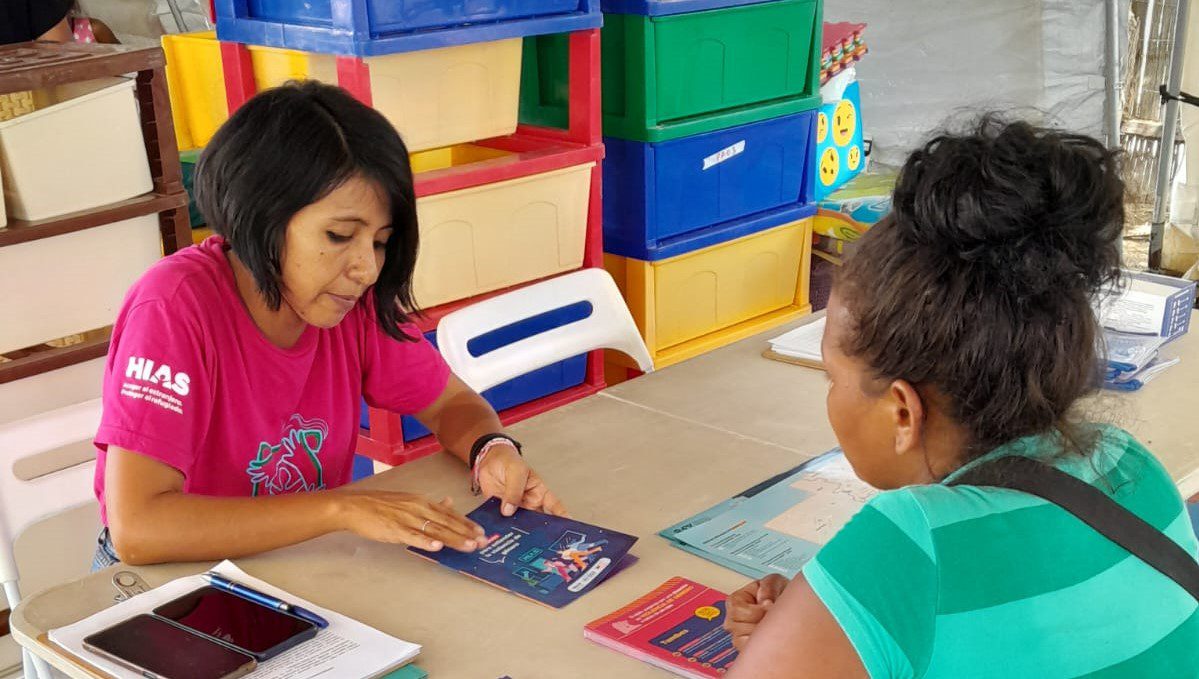
Raquel Álvarez provides a GBV information session to a woman at the HIAS Information Point in Tumbes, Peru. January 2024. (Raúl Peña/HIAS)
In Latin America and the Caribbean, one out of every three women has experienced some form of physical or sexual violence in their lives. The region is also one of the least tolerant in the world for LGBTQ+ people.
To address these issues, HIAS developed the gender-based violence (GBV) prevention, mitigation, and response program in Colombia, Ecuador, and Peru with the support of the Swiss Development Cooperation (SDC).
The program, Putting GBV Survivors at the Centre, provides women, girls, and LGBTQ+ people with case management services, psychological support, legal advice in safe spaces, emergency support, and GBV prevention activities.
HIAS program staff in each border region tell us about their roles and why it’s important for them to work with GBV survivors:

Vanessa Florez carries out an information session with a program participant in Pereira, Colombia. April 5, 2024. Ivana Calderón/HIAS)
Vanessa Florez, Program Specialist — Cali, Colombia
In Cali, our humanitarian assistance is focused on the prevention, response, and mitigation of GBV for survivors and at-risk individuals, mostly mothers without support networks and members of the LGBTQ+ community.
We provide mental health care and psychosocial support. We also provide information on access to rights, services, and GBV protection mechanisms, while training the local authorities and community leaders.
I remember the case of a woman who had survived GBV and who had just arrived in Cali with her children. She came with many fears, but also with great dreams. With HIAS’s support, she became a leader in her community. It fills me with happiness to know that she found a way to fulfill her dreams. She moved forward and today she’s an empowered GBV survivor.
I strongly believe in social justice, and the fact that HIAS is an organization that works to protect the rights of refugees contributes positive things to me on a personal and professional level. What motivates me most in my work is dignifying survivors through community actions that improve their access to rights and services.

Edith Pérez provides consultation to a participant in the transport terminal of Puno, Peru. March 19, 2024. (Valeria Giovana Rodriguez del Carpio for HIAS)
Edith Perez, Social Worker — Puno, Peru
My work consists of providing care to survivors of GBV in the southern border city of Puno, between Peru and Bolivia, in a territory with extreme temperatures that can reach -2° F. I offer women and people from the LGTBQ+ community orientation on GBV. We inform them about how they can report cases and access state services such as the Women’s Emergency Centers (CEM). I also manage emergency cases through accompaniment, referral to services, and follow-up.
I remember the case of a Colombian woman who suffered severe physical violence. She came to us in a fragile state, and we provided emergency case management, assisted her with protective services, and promised to accompany her throughout the process. Months later, she was very excited to thank us and tell us that HIAS had been there to help her when no one else was.
In Puno, GBV is normalized, and this can be challenging. However, working to mitigate new incidents of GBV and seeing the impact is also motivating and rewarding. I enjoy the process of interacting with people and seeing how empowered they become when they better understand their rights thanks to the work we do at HIAS.
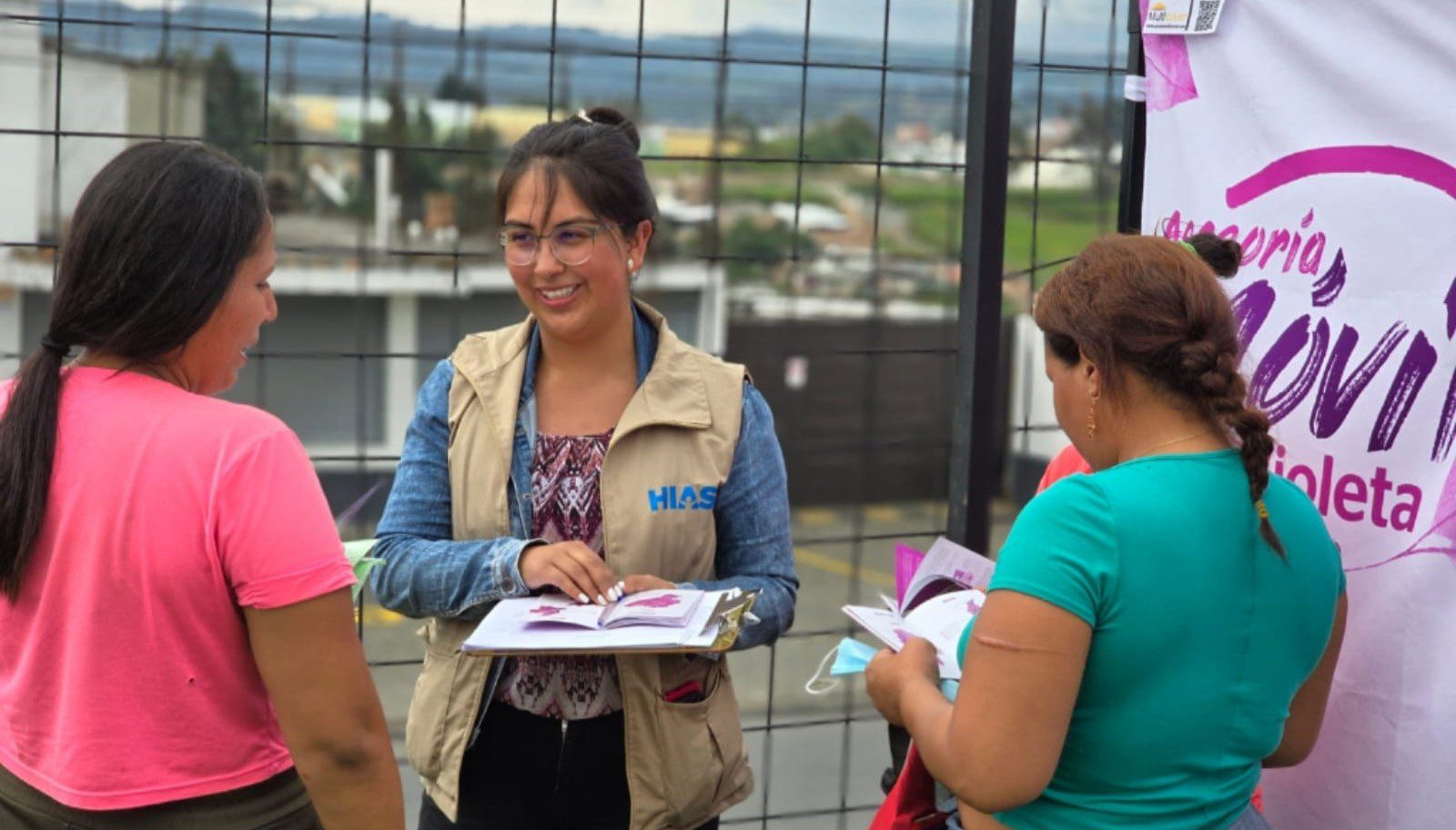
Vanessa Novoa provides guidance to women at a GBV pop-up attention point in Tulcán, Ecuador. March 21, 2024. (Andrea Castro/HIAS Ecuador)
Vanessa Novoa, Protection Officer — Tulcán, Ecuador
I think a lot about my own family, as some of them have left Ecuador to move to other countries. They told me how difficult it was for them, and so I understand the importance of accessing information and creating support networks for people who have just arrived in Tulcán.
I work with people who have suffered GBV in the border region between Ecuador and Colombia. There are many cases here. Our work strengthens local capacities, creates safe spaces, and develops community support networks to help people access safe and reliable information.
For me, the most rewarding aspect of this work is seeing how many people tell us that they feel safe in our offices after receiving support. It’s really meaningful to witness how people can achieve stability, pursue their future goals, and improve their quality of life in a new place once given the right support.
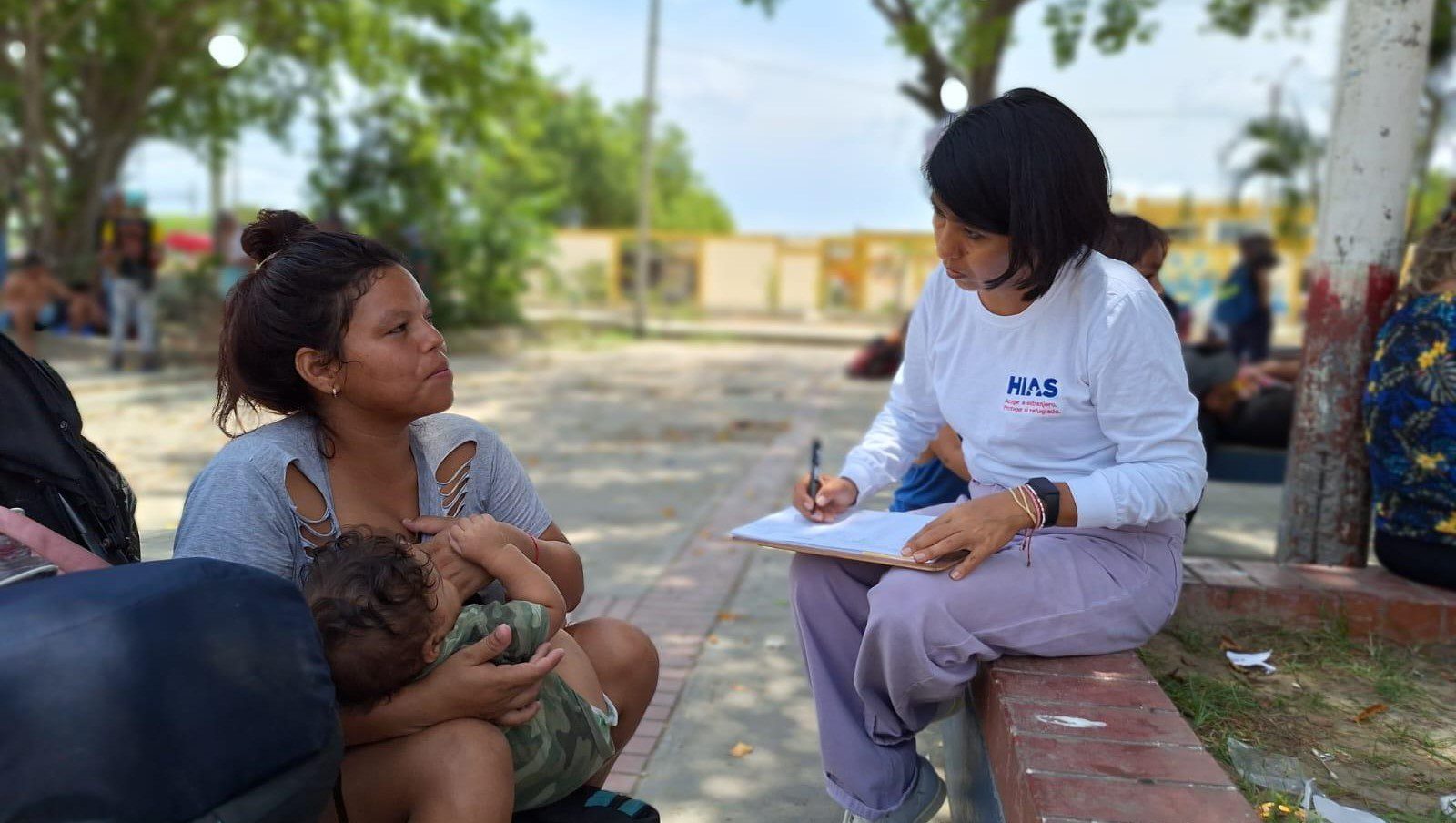
Raquel Álvarez provides an information session to a woman at the Aguas Verdes attention point in Tumbes, Peru. March 19, 2024. (Diego Gómez González/HIAS)
Raquel Alvarez, Social Worker – Tumbes, Peru
I provide care to survivors of GBV in the border region between Peru and Ecuador. It’s a high-risk area for survivors and people at risk, as sexual violence is frequent. Serious incidents of GBV occur in the center of Tumbes, and this particularly affects refugee and migrant women.
We focus our work in Tumbes on preventing incidents of GBV. The women and LGBTQ+ people we serve receive case management services. They are also provided with psychological first aid and other emergency response services.
I joined HIAS because of their expertise in supporting people who have experienced GBV. The most rewarding part of this work for me is contributing to the well-being of survivors, to ensure that they feel empowered to access their rights and defend them.
HIAS works in 11 countries in LAC providing GBV prevention, mitigation, and response services to forcibly displaced people and members of the local community. Our work focuses primarily on supporting women, girls, and members of the LGBTQ+ community. Learn more about our work.



